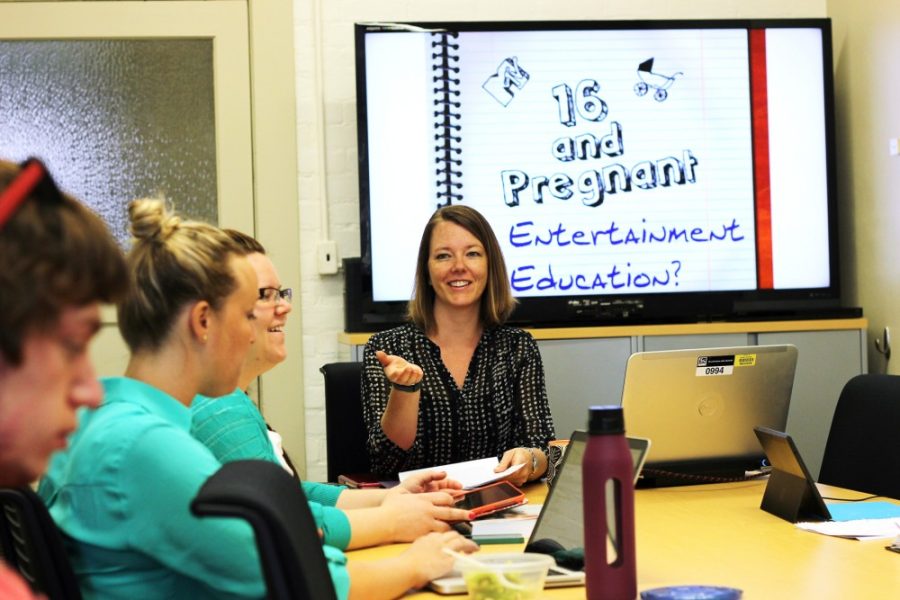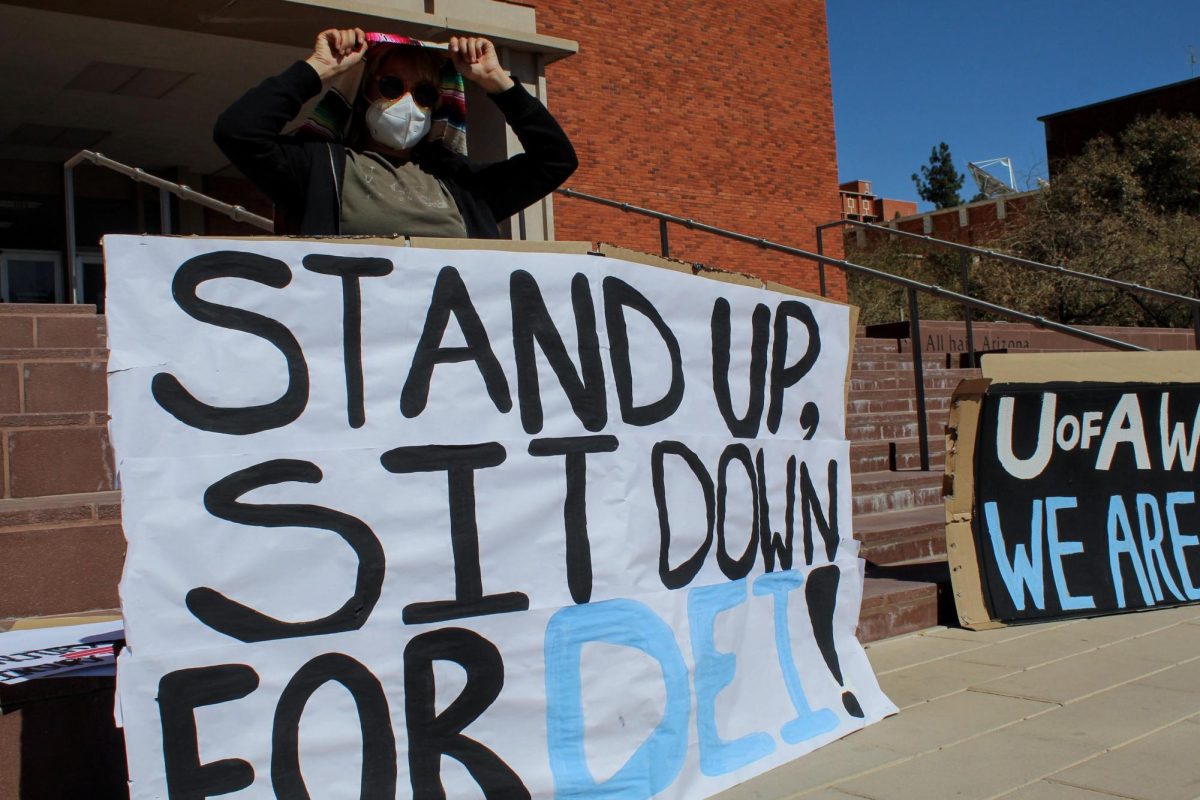The popular MTV show “16 and Pregnant” does more than just entertain, according to a study by a UA professor.
The study, which was led by communication professor Jennifer Stevens Aubrey, shows that viewers who identify with the teenage mothers on the show tend to view teen pregnancy more favorably.
While watching a segment on “The Today Show” with two of the teenage mothers from “16 and Pregnant” and Dr. Drew Pinsky, Aubrey said she noticed that when the girls were asked if the show worked as educational entertainment, Pinsky quickly interrupted. Instead of allowing the teens to share their experiences, Pinsky spoke over them, aggressively boasting about the success of the program in preventing teenage pregnancy.
“You can’t just say it works because hypothetically it could,” Aubrey said.
Aubrey said that she decided to focus her study on whether “16 and Pregnant” was effective as a pregnancy prevention mechanism and if the show improved behavioral intentions to avoid teen pregnancy, because when the show aired in 2009, MTV was advertising it as an educational entertainment program.
“What I had been seeing at the beginning of the ‘16 and Pregnant’ craze was a lot of rhetoric around the notion of it saving us from the teen pregnancy epidemic,” Aubrey said.
Aubrey said it was clear that MTV chose girls for the show who would be relatable to girls all across the country.
“If they [teenage girls] see someone like them going through teen pregnancy, that is going to make them not want to emulate it,” Aubrey said.
Homophily, or perceived similarities, and parasocial interaction became two of the main focuses of Aubrey’s study.
“We measured how much the girls in our study perceived themselves to be similar to the teen moms in ‘16 and Pregnant,’” Aubrey said.
Parasocial interaction looks at whether the girls who participated in the study would be friends with the girls on the show in real life. Through the study, Aubrey said, she found that there was a strong positive relationship between perceived similarities and favorable attitudes about teen pregnancy. She said that when a girl thinks of herself in the same way she perceives the teenage moms, she ends up thinking teen pregnancy is positive.
Taryn Hill, a criminal justice freshman, said that she is not an avid viewer of “16 and Pregnant,” but from what she has seen, she believes that the show does not do anything to educate people on preventing teenage pregnancy.
Hill said that she remembers a young girl at her high school having a pregnancy scare, and that instead of being terrified, the girl thought about applying to be on “16 and Pregnant” so she could make a lot of money.
Aubrey said that many of the girls who look up to the teenage moms in “16 and Pregnant” do not have plans for the future and do not plan on going to college.
“If I would be critical of the show it would [about] be the lack of contraception knowledge, and also the glamorization of the relationships,” Aubrey said. “I think those are the two areas where MTV didn’t fulfill their educational mission.”
Yanelly Nunez, a pre-business sophomore, said that she agrees with Aubrey that MTV missed the mark on educational value.
“It’s just another reality show,” Nunez said. “Its sole purpose is to entertain.”









